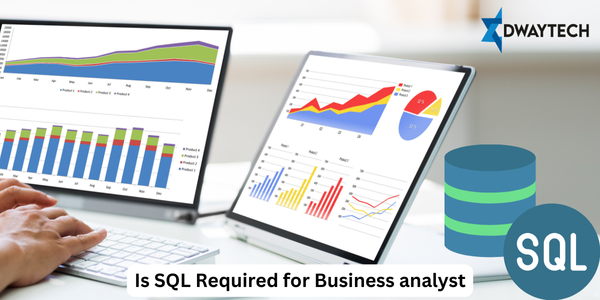Is SQL Required for Business Analyst – Business analysis is a dynamic field where professionals interpret data, craft solutions, and drive decisions. With the increasing reliance on data, the skill sets required for business analysts have expanded significantly. One skill frequently used in discussions is SQL, or Structured Query Language. But is SQL essential for business analysts?
What is SQL?
SQL stands for Structured Query Language. It is a standard programming language used to manage and manipulate databases. SQL allows users to query data, insert, update, and delete records, and create and manage database structures. It’s the backbone of data retrieval in many business environments.
Role of a Business Analyst
Business analysts (BAs) bridge the gap between IT and business teams. They gather requirements, analyze processes, and recommend solutions. Key responsibilities include:
- Gathering and documenting business requirements
- Analyzing data to identify trends and insights
- Communicating findings to stakeholders
- Facilitating solution implementation
The skill set for a BA is diverse, encompassing both technical and soft skills.
How SQL Fits into Business Analysis
SQL is crucial for handling and analyzing data. BAs often need to extract data from various databases to perform their analyses. SQL enables them to:
- Data Handling and Analysis: Extract, transform, and load (ETL) processes to manage data.
- Reporting and Decision Making: Generate reports and dashboards to support business decisions.
Advantages of Knowing SQL for Business Analysts
Knowledge of SQL offers several advantages:
- Improved Data Access: Directly retrieve and manipulate data without relying on IT teams.
- Enhanced Reporting Capabilities: Create more accurate and detailed reports.
Scenarios Where SQL is Essential
There are specific scenarios where SQL becomes indispensable:
- Large Data Projects: Handling massive datasets that require efficient querying.
- Data-Driven Decision Making: Providing precise data insights for strategic decisions.
Learning SQL: How Difficult is it?
Learning SQL can be straightforward, especially at a basic level. Advanced SQL involves more complex queries and database management skills. Numerous resources are available for learning SQL, including:
- Online courses (e.g., Coursera, Udemy)
- Books and tutorials
- Practice platforms (e.g., LeetCode, HackerRank)
SQL Alternatives
While SQL is powerful, there are other tools for data management:
- Excel: Widely used for smaller datasets and simple analysis.
- Tableau: Excellent for data visualization.
- Python/R: Advanced data manipulation and statistical analysis.
Each tool has its pros and cons, and the choice depends on the specific requirements of the project.
Industry Perspectives
Many industry experts emphasize the importance of SQL for BAs. Real-world examples show how SQL proficiency can lead to more efficient data handling and insightful analyses.
Case Study: SQL in Action for Business Analysts
Consider a BA at a retail company tasked with analyzing sales data. By using SQL, they can quickly retrieve data on sales trends, customer preferences, and inventory levels. This data drives decisions on stock management and marketing strategies, ultimately improving sales performance.
Balancing SQL with Other Skills
While SQL is valuable, it’s not the only skill BAs need. Soft skills such as communication, problem-solving, and stakeholder management are equally important. A balanced skill set ensures a BA can handle both technical and non-technical aspects of their role.
Future Trends in Business Analysis and SQL
The role of data in business analysis continues to evolve. Emerging tools and technologies, such as machine learning and AI, are shaping the future of data analysis. SQL remains relevant, but BAs must also stay updated with new trends.
Conclusion
SQL is a powerful tool for business analysts, enabling them to handle and analyze data efficiently. While it’s not mandatory for every BA, knowing SQL can significantly enhance their capabilities. As the field of business analysis continues to grow, SQL remains a valuable skill to have.
FAQs
Is SQL mandatory for all Business Analysts? No, it’s not mandatory, but it is highly beneficial for data analysis tasks.
How long does it take to learn SQL? Basic SQL can be learned in a few weeks, but mastering it may take several months.
Can you be a successful Business Analyst without SQL? Yes, but having SQL skills can enhance your data handling and analysis capabilities.
What are some good resources for learning SQL? Online courses (Coursera, Udemy), books, and practice platforms (LeetCode, HackerRank).
What differentiates SQL from other data analysis tools? SQL is excellent for database management and querying, while tools like Excel and Tableau are better for data visualization and simple analysis.
Also, Useful Links:
Business Analyst Training Course Online Request Demo











